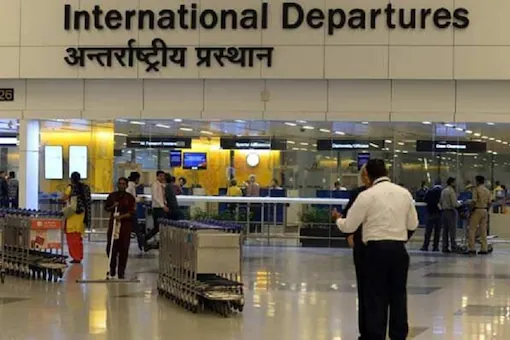The Civil Aviation Ministry announced Friday evening that India will resume scheduled international flights from December 15, subject to certain conditions, stating that the “issue has been examined and the competent authority” has agreed to resume such flights (to and from India).
“In collaboration with the Ministries of Home Affairs, External Affairs, and Health, the resumption of scheduled commercial international passenger services to and from India has been evaluated, and it has been concluded… may be resumed as early as December 15,” the ministry said.
The Aviation Ministry announced that 14 countries recognised as ‘at risk’ by the Health Ministry and with whom a ‘air bubble’ agreement already exists would be allowed to resume 75% of pre-Covid operations (or a minimum of seven frequencies per week).
The United Kingdom, Singapore, China, Brazil, Bangladesh, Mauritius, Zimbabwe, and New Zealand are among the 14 countries. South Africa, Botswana, Israel, and Hong Kong are among the nations where the novel B.1.1.529 coronavirus strain has been confirmed.
According to the Aviation Ministry, countries categorised as ‘at risk’ but lacking ‘air bubble’ agreements with India will be allowed to restart 50% of bilateral capacity rights.
International passenger flights between India and other countries can resume their regular schedules.

Following the Covid lockdown in March of last year, all scheduled international flights were suspended, with the exception of repatriation services and flights transporting necessary cargo.
With ‘air bubble’ agreements with other nations, restrictions were gradually removed as the caseload declined and vaccination coverage improved.
Under such an agreement, member countries’ airlines can operate international passenger flights into each other’s borders, subject to specific criteria.
Concerns about the B.1.1.529 strain, which was first discovered in South Africa and has since been found in Botswana, Israel, and Hong Kong, have prompted the decision to reopen scheduled international passenger operations.
As governments scramble to stop the new version, Germany and Italy have joined the United Kingdom in prohibiting most travel to South Africa. In an indication of mounting concern, the European Union has proposed a separate restriction on travel from southern Africa.
The World Health Organization (WHO) has advised countries to take a “risk-based and scientific approach” before imposing travel restrictions.
The new variety has been detected because of an unacceptably high number of mutations, including more than 30 on the spike protein, which the virus uses to gain entry to our cells.
Researchers are still unsure if this makes it more transmissible or toxic than previous variations.
Jyotiraditya Scindia, the Minister of Civil Aviation, said last week that the government was assessing the process of normalising international flight operations. He stated that the government will take steps to prevent a new wave of infections, especially since other European countries have seen outbreaks.



